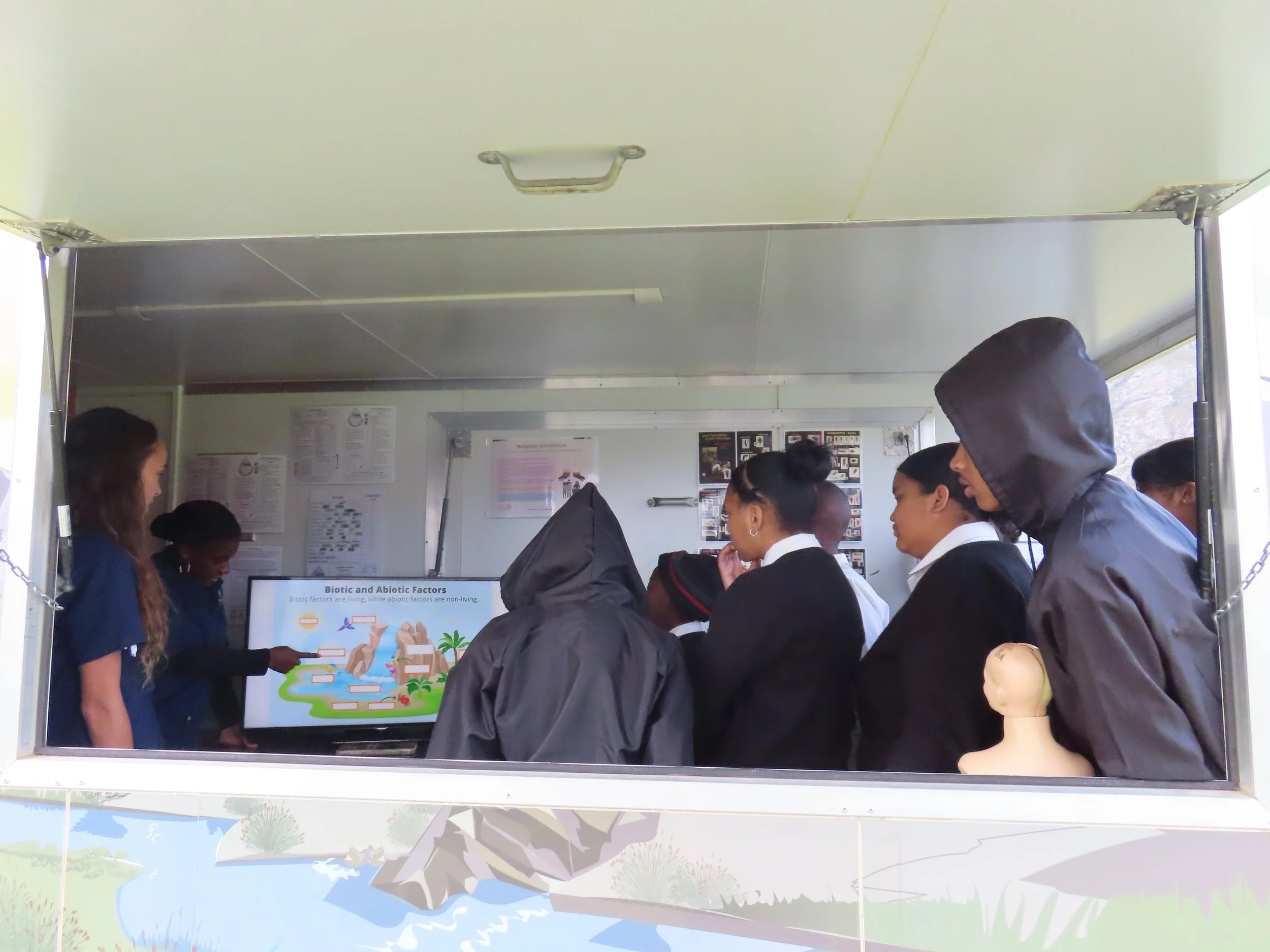Addressing a Growing Gap: Eco-literacy and Science in Public Schools
As the second school term draws to a close, and exams are around the corner, the Cape Winelands Biosphere Reserve environmental education team has wrapped up the initial set of scientific and eco-literacy focused activities facilitated in the second school semester. Alongside a teacher devoted to her student’s education, at a no-school fee public school in the Franschhoek Valley.
The CWBR team have been facilitating hands-on activities supporting enhanced skills and understanding of topics within science, technology, engineering, art, and math (STEAM). Through bi-weekly in-class support for six Grade 8 and 9 classes at Groendal Secondary School (GSS), reaching approximately 250 students. Together with the enthusiastic science teacher, and full support of the principal, the CWBR led activities aim to expand the student’s understanding of STEAM subjects. Increasing access to future opportunities in a socio-economically stretched and limited prospect environment.
Considering the technological advancements that have also taken place, the fourth Industrial Revolution (4IR), employment opportunities in fields such as robotics, coding, design, and AI will be at the forefront. Youth will therefore need to be equipped with skills and knowledge in STEAM subjects in order to access these future fields of work.
In the learning space
The GSS students anticipate what hands-on activity or experiment they will be conducting in class on the days that the CWBR team visits. In the second semester, the pupils created atoms using clay models, and learned about the atom’s components, then onto different phases of matter, and diffusion. Fun experiments such as inflating balloons with carbon dioxide gas created in a simple soda bottle! Each activity has been thoughtfully planned, in collaboration with the teacher, and aligned with the lesson plan for the natural science class curriculum.
In addition, a bi-weekly after-school science club is taking place at the school grounds with 30 students and growing. GSS youth who are passionate about science and STEAM subjects as a whole, and curious about their natural environmental surroundings, have the opportunity to part-take in hands-on activities at STEAM-Y. A mobile pop up classroom, with multiple workshops that the pupils rotate between. It is a space which aims to foster curiosity and the importance of learning and self-development through knowledge exchange.
The students learned about the importance and life of a river system, various citizen science methods, eco-systems, and the eco-system food chain in the second semester. They were also introduced to the concept of a biosphere reserve, and that in fact, that they live in the heart of one!
Throughout these workshops, the students were also introduced to and are learning how to use the Globe app, an online free citizen science tool, and extensive curriculum, encompassing all topics biodiversity. Created by NASA.
Answering questions posed in the app, the students gathered data on cloud formation, and learned about additional citizen science methods, including an introduction to river monitoring and the use of miniSASS. The student’s role as humans in the ecosystems was discussed. The importance to protect and preserve it for future generations.
In addition, the in-class and outdoor engagements have a cross-cultural component with our visiting international volunteers. It is providing a unique quality of education to prepare the learners to navigate the opportunities for the 21st century whilst being mindful of living in harmony with nature. An ethos at the heart of Cape Winelands Biosphere Reserve.
The CWBR team look forward to joining Groendal Secondary School again in term three, for some more fun hands-on science activities and innovative approaches to learning.






